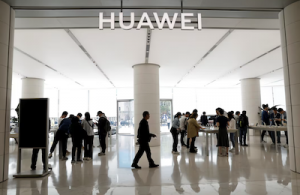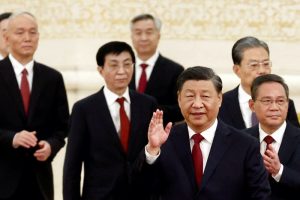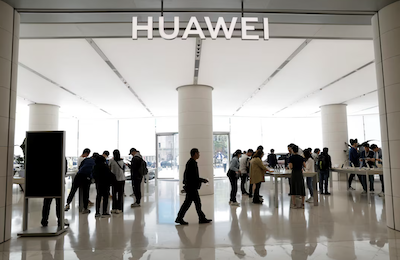Factory activity in China has been hit by a sharp fall in new export orders and a drop in employment.
A private-sector survey released on Wednesday showed that US tariffs are beginning to affect China’s sprawling manufacturing sector, as Beijing opted not to announce fresh stimulus, given expectations that the trade war will be a drawn-out tussle.
The Caixin/S&P Global manufacturing PMI slipped to 50.4 in April from 51.2 in March, which marked the lowest reading since January. The 50-mark separates growth from contraction.
ALSO SEE: US Says One of its First Trade Deals Will be With India
The result contrasts with China’s official PMI released on Wednesday that showed factory activity falling faster than expected in April.
“The ripple effects of the ongoing China-US tariff standoff will gradually be felt in the second and third quarters,” Wang Zhe, economist at Caixin Insight Group, said.
“Policymakers should be well-prepared, with action taken sooner rather than later.”
According to the survey, the rate of contraction in new export orders was the sharpest since July 2023. This also led to a slower and only marginal rise in total new orders.
Output, however, continued to expand, though at a slower pace, as factories worked through both new and existing orders.
Business confidence slumps
Firms lowered their inventories as business optimism slipped to the third-lowest since this series began in April 2012, due to the trade uncertainty.
Trade disruptions and supply constraints resulted in a slight lengthening of supplier lead times in April. Greater competition among vendors amid subdued demand for inputs led to another drop in average input costs.
After rising in March, employment in the manufacturing sector declined in April, due to both resignations and company restructuring plans out of downsizing and cost-cutting efforts.
Former Premier Li Keqiang said in 2020 the country’s foreign trade sector, directly or indirectly, supported 180 million people’s jobs.
At last week’s Politburo meeting, top leaders pledged to support firms and workers most affected by the impact of triple-digit US tariffs.
Officials from multiple economic departments on Monday tried to assuage concerns the US tariffs could derail efforts to shore up a fragile economic recovery.
The government has promised to support exporters who try to shift their sales to the domestic market, but some exporters were reluctant to heed the calls, citing weak domestic demand, price wars, low profits, payment delays and high product return rates in the domestic market.
- Reuters with additional editing by Jim Pollard
ALSO SEE:
China Issues Third Denial of Any Talks on Tariffs With Trump
Shein, Temu Prices to Rise up to 200-300% After US Tariffs – SAN
China Warns CK Hutchison to be Careful on Ports Deal
China Opts to Keep Its Powder Dry, Defers Unveiling New Stimulus
China Says US Tariffs Severely Affect Its Airlines and Boeing
Tariffs Must be Scrapped if US Truly Wants a Trade Fix: China
China Mocks Trump’s Turnaround: ‘Tariffs to Drop Substantially’
China Vows to Retaliate if Trade Deals Hurt Its Interests
EU Rejects US Offer to Cut Tariffs if it Pulls Away From China – IT
TransPacific Cargo Trade Decimated by Trump’s Tariff War
























